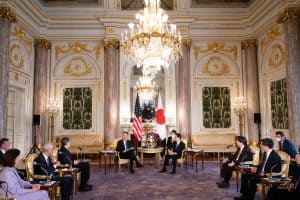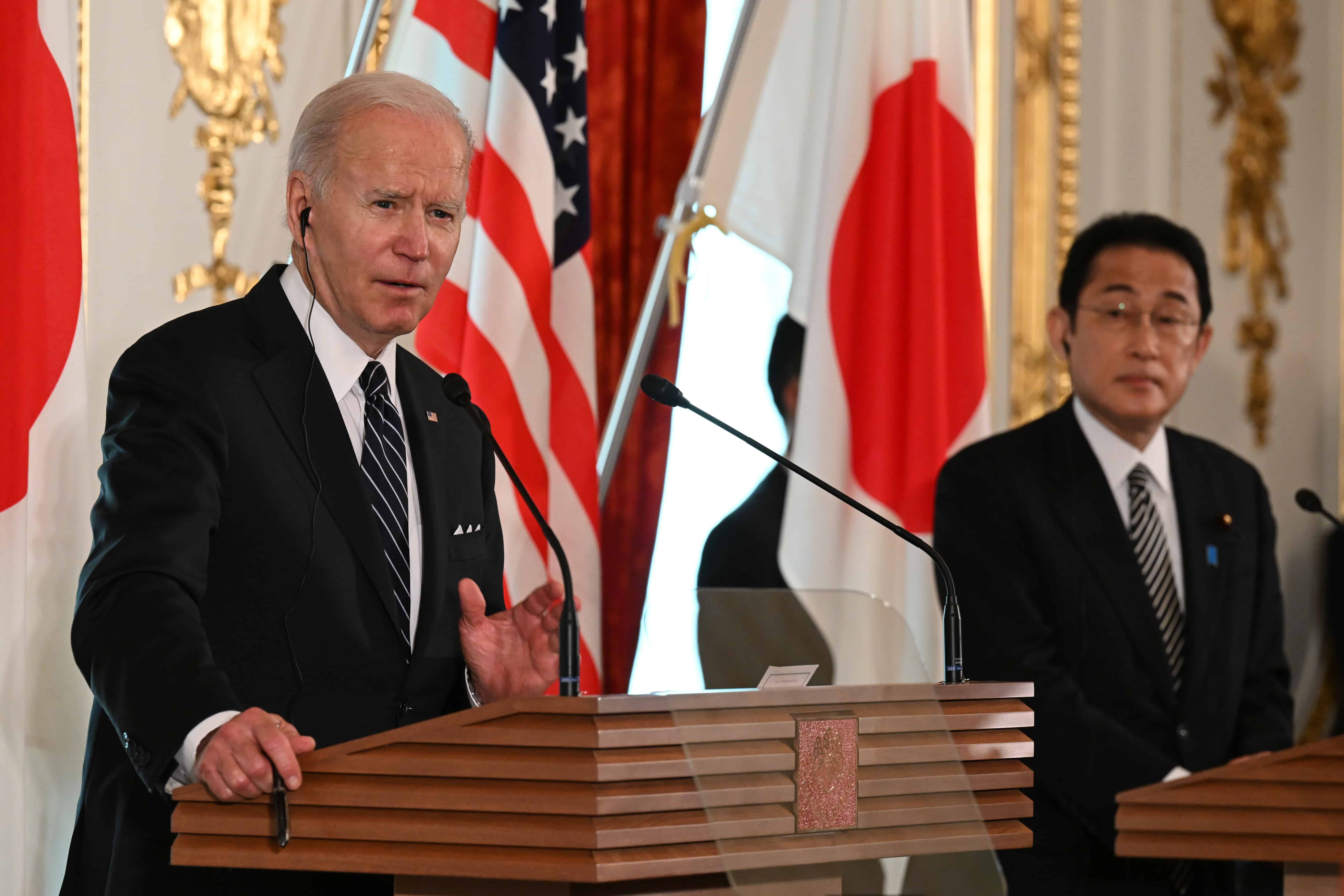He did not say what countries had already signed up to IPEF, which the White House is billing as a framework for what will ultimately become a tight-knit group of trading nations.
Unlike traditional trade blocs, there is no plan for IPEF members to negotiate tariffs and ease market access a tool that has become increasingly unpalatable to US voters fearful of undermining homegrown manufacturing.

Instead, the program foresees integrating partners through agreed standards in four main areas: the digital economy, supply chains, clean energy infrastructure and anti-corruption measures.
Biden has pushed to rapidly rebuild strategic military and trade alliances weakened under his predecessor Donald Trump since taking office in 2021.
And IPEF is intended to offer US allies an alternative to China’s growing commercial presence across the Asia-Pacific.
However, there is no political will in Washington for returning to a tariffs-based Asia trade deal following Trump’s 2017 withdrawal from the Trans-Pacific Partnership a huge trading bloc that was revived, without US membership, in 2018 as the Comprehensive and Progressive Agreement for Trans-Pacific Partnership.
China has criticized IPEF as an attempt to create a closed club. Biden’s national security advisor, Jake Sullivan, rejected this, telling reporters “it is by design and definition an open platform”.
Sullivan said that Taiwan, a self-governing democracy that China claims sovereignty over, has not been brought into the initial line-up despite being an important link in microchip supply chains.
Sullivan said nevertheless that the United States is “looking to deepen our economic partnership with Taiwan, including on high-technology issues, including on semiconductors and supply chains.”
This will happen, however, only “on a bilateral basis”.

